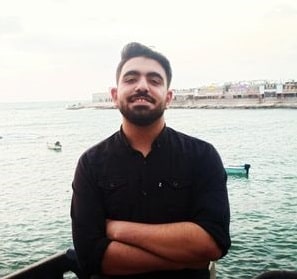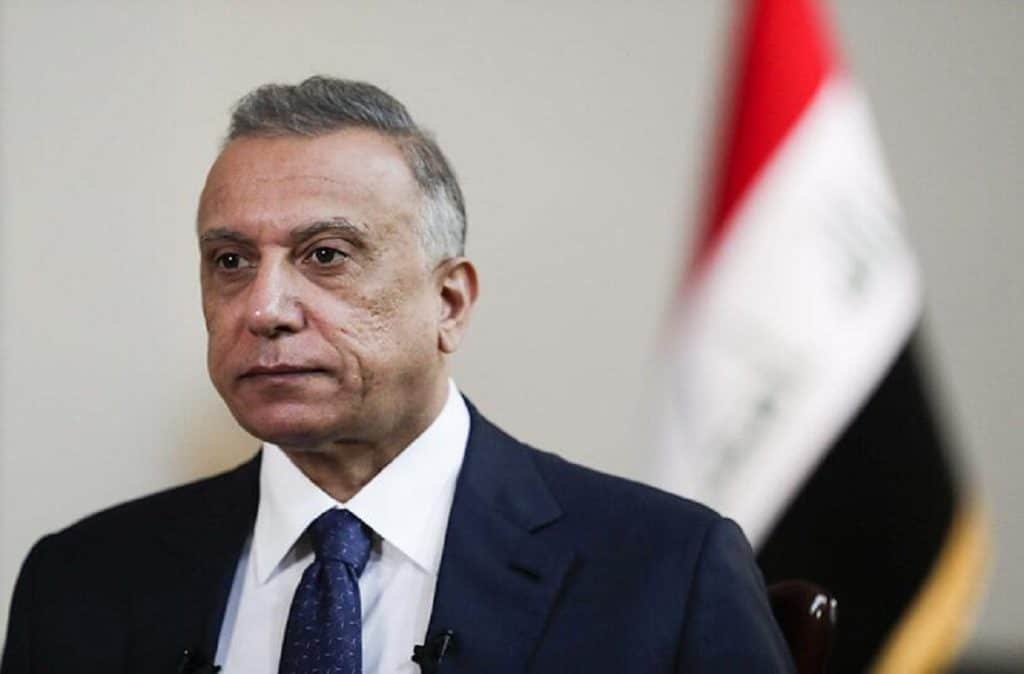By Eslam Abdelmagid Eid
Iraqi parliamentary elections were held on October 10, with Iraqis not expecting them to bring anything new. Since 2003, the political process in Iraq has produced a system characterized by sectarian and ethnic quotas, which has negatively affected the Iraqi reality due to the existence of a fragile political system, hampered by partisan militias affiliated with foreign parties, driving from neighboring Iran.

The results of the elections brought no notable changes in the presence of the political blocs that have dominated the country’s political life since 2003, and the percentage of participants in the electoral process was relatively weak, according to the announcement of the High Electoral Commission in Iraq, where the initial participation rate was estimated at only 41%.
Possible scenarios
The election results showed a significant decline of some blocs loyal to Iran, led by the Al-Fateh Alliance. The most prominent representative of the Popular Mobilization Forces, led by Hadi Al-Amiri, won only 17 seats, which is a significant decline for the coalition that won 48 seats in the previous elections, and represented the second largest force in the previous parliament, while the State of Law coalition led by Nuri al-Maliki won 34 seats, a big difference with the largest bloc in parliament, the Sadrist movement, which won 70 seats.
As a result, parliament without a majority capable of forming a government requires Muqtada al-Sadr, the leader of the largest bloc in parliament, to form alliances to form a coalition government. The Kurdistan Democratic Party led by Masoud Barzani and the Sunni Progress Alliance, led by Muhammad al-halbousi, may allow al-Sadr to easily form a government, as al-Sadr represents a moderate Shiite current unlike other Iran-affiliated state currents
On the other hand, there is the possibility of an independent opposition emerging in the new parliament. The Imtdad movement that emerged from the October 2019 demonstrations won 9 seats in parliament, including 5 seats in Dhi Qar governorate, where the city of Nasiriyah, where the protests began, is located, while Ishraqah Kanon won 6 seats. The movements that emerged from the demonstrations could form an alliance with the independents in Parliament to form an opposition that could count up to 20 seats that could influence some decisions in Parliament.
Al-Kazemi is still in the forefront
With the formation of the government in Iraq relying on the majority in Parliament, which none of the political forces could achieve on their own, as well as the absence of names of other prominent candidates, Mustafa Al-Kazemi’s position remains strong as the head of the next government. Al-Kazemi will be a consensus candidate for all political parties in parliament, especially since he does not belong to any party or political current present in the political process in Iraq.
Looking at the results of the recent elections, the shares of Mustafa Al-Kazemi are increasing to take the post of prime minister, especially with the decrease in the percentage of seats obtained by the pro-Iranian alliances, led by Al-Fateh and State of Law, and with the possibility raised for an alliance between the Sadrist movement, the Kurdistan Democratic Party and the Sunni Progress Alliance , which won about 40 seats in the recent elections, as the three parties have good relations with the Arab milieu, which wants Al-Kazemi to stay.
The recent events following the assassination attempt to the acting prime minister Mustafa Al-Kazemi at his residence in Baghdad indicate the rise of his popularity among popular circles, especially with Iraq’s growing discontent with armed organizations outside the framework of the law, as the assassination attempt was a response to Al-Kazemi’s policies, which will earn Al-Kazemi popular support to move forward with his policies if he is assigned to head the next government.
In addition, the clear American desire for Al-Kazemi to remain as head of the Iraqi government will be a key factor in the coming period, especially since the Shiite authority in Najaf will not object to Al-Kazemi assuming the position again, and they have not yet issued statements of rejection.
The future of opening to the Arab incubator
There is a state of ambiguity about the next Iraqi position regarding the openness that Al-Kazemi recently conducted towards the Arab region, particularly regarding the new Levant project with Egypt and Jordan, but the expectation of the continuation of this policy pursued by Al-Kazemi remains highly probable, as it was linked to realistic things on Iraqi soil.
With the expectations of Al-Kazemi’s continuation, it is assumed that the open policies will continue with the Arabs, led by Egypt, especially since the three prominent parties in the Iraqi elections are among the three main components of the country, namely the Shiite Sadrist movement, the Kurdistan Democratic Party, and the Sunni Progress Alliance, which have a distinct relationship with the Arab surroundings of Iraq, which may be enough to continue Al-Kazemi’s open approach towards Egypt and the rest of the Arab countries.
At the same time, the Iraqis themselves have begun to feel a kind of trust and relief for their Arab brothers as an alternative to Iran or at least to limit Iranian control over the country, especially in light of the upcoming projects under the new Sham project, and Iraq’s need for Egyptian manpower for the nuclear deal, in addition to the rapprochement talks with Saudi Arabia, especially since some of its armed militias constitute an official part of the Iraqi armed forces.
Persistent Iranian influence
Although the results of recent parliamentary elections in Iraq have seen a decline in blocs loyal to Iran, Iranian influence in Iraq is expected to remain, due to several factors, the most important of which is the presence of parties loyal to it, most of which have armed militias, some of them under the banner of Popular Mobilization, that have the ability to influence politically and security on the situation in Iraq.
Iran has had its political and military weapons in Iraq since 2003, and therefore the loss of one bloc or another loyal to it in the elections will not affect much its presence as a major actor in Iraq, but it may reduce the intensity of interference in some issues that are not closely related to it, and will seek to preserve its interests represented To ensure the presence of the Popular Mobilization Forces, and to keep the Iraqi market open to Iranian goods in light of the embargo imposed on it by the United States and its allies.
Tehran is interested in keeping Iraq as a bargaining chip to be used in the ongoing talks and negotiations with the United States, in conjunction with the Vienna talks on the nuclear agreement, in addition to the rapprochement talks with Saudi Arabia, especially since some of its armed militias constitute an official part of the Iraqi armed forces.
In summary, the results of the recent elections in Iraq have kept the presence of the main blocs that control power in the country as they are, but it is expected that some adjustments will be made on the course of political balances and alliances between and among political forces, with the expected continuation of discussions on a consensual formula that satisfies the parties in the political process regarding the formation of the new government, while the chances of Al-Kazemi to remain in office and continue open policies with Egypt and other Arab countries remain strong, while the outcome of the elections will not affect Iran’s influence in the country, but rather remain an important player in Iraq.
Author: Eslam Abdelmagid Eid (Academic, political researcher, and specialist in Middle East affairs)
(The views expressed in this article belong only to the author and do not necessarily reflect the editorial policy or views of World Geostrategic Insights).
Image Credit: AP/Khalid Mohammed







